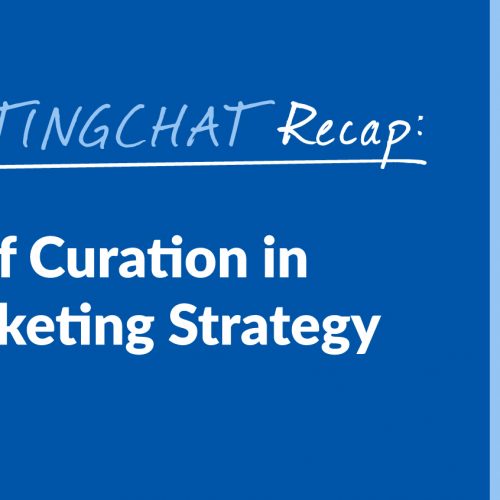Explaining Our Content Strategy Services at Express Writers (4 Ways We Can Strategize & Save You Time)
This blog was updated in October 2019. This will hardly come as a surprise, but we love content. ❤ Our entire business is built on content, but it goes beyond that – it’s in our blood. We know that great content is one of the most powerful ways to grow your business, find new leads, and stand out among your competitors. You don’t have to take our word for it, either, the numbers speak for themselves: 71% of all B2B buyers read (multiple) blogs when making decisions. B2B companies with a smart content strategy generate 67% more leads than their competitors. Websites that blog regularly have (on average) 434% more indexed pages in Google. Great content gives your business the attention it deserves, but just publishing without a plan is hardly what we’d call a solid strategy. What you need is a sustainable, data-driven process, that can help you grow your business and keep giving you positive results over the long term. You need a content strategy, and that’s where we come in with our expert content strategy services. 4 Highly Recommended Content Strategy Services to Help You Create Winning Content 1. A custom editorial calendar 2. In-depth keyword research 3. Topic planning for your blog and website 4. Expert content strategy consultations We didn’t select any of these services at random. These are many of the same processes that we used to grow Express Writers to the point where it is today (I’ll talk more about this in a second!). Now that we know what works and why, we’re ready to share these services with you to grow your own business. [bctt tweet=”To have a working and winning content strategy, you need 4 components: a custom editorial calendar, keywords researched, topics planned, and expert guidance. Get these essentials with the help of @ExpWriters. ? ” username=”JuliaEMcCoy”] Developing the Right Content Strategy Helped Us Grow — and It Should Help You Too Here’s how I know just how effective a well-planned content strategy can be: it’s how we grew Express Writers to the point where it is today. It took years to figure out and, more importantly, perfect the entire process, and I didn’t want to settle for anything less than perfection. Within 2 years of implementing our content strategy, Express Writers boomed to 6 figures and then 7 in annual recurring revenue (ARR). We weren’t doing all that bad before, but the growth was insane, and I can boil that down to two things: 1. Our content strategy. We’re not really into creating content for content’s sake. Instead, I developed a content strategy process that focuses on high-quality, authority-level content, guided by in-depth SEO research. Once I got clear on the six areas of content strategy we needed to clarify and implement, our real content success began to happen. (My first foray into content strategy was when I built a simple team-only inner training on content strategy, as far back as 2015. Today, I’ve taken these cores and developed them into a $1,000 course with over 100 enrolled students, and a book that tops the charts on Amazon.) 2. The amazing team we have in place. FACTS: If you want to execute a winning strategy, you need expert, talented help in your corner. ? At Express Writers, we’re content experts first, a team secondly — not the other way around. We love what we do, and that has always come first. We didn’t scramble for our expert hats and then market ourselves. We earned a real status by building real skills, and THEN sold services to our clients in our agency. Read about our standards here. I’ve talked extensively about the content strategy we implemented to grow Express Writers. However, if I had to sum it up in a few words, it would be these. Stop wasting time with low-effort content. Instead, put real effort into high-quality pieces and SEO. It sounds pretty simple when you put it like that. However, the amount of research, planning, and work that goes into executing a solid content strategy is mindboggling, particularly as your website starts to grow. Remember how I mentioned it took us years to perfect the process? And that’s coming from people that do this for a living! [bctt tweet=”We have succeeded mostly because of the content strategy we’ve implemented throughout the years. The lesson: Stop wasting time with low-effort content. Instead, put real effort into high-quality and your #strategy. ? ” username=”ExpWriters”] 4 Ways We Save You Some Serious Time and Trouble with Our Expert Content Strategy Services You already understand the sheer power of content when it comes to growing an online business, so let’s talk about how we can help you. 1. We Put Together a Custom Editorial Calendar that Fits Your Goals (?It’s a Must-Have!) You want your website to rank for as many keywords as possible, which means you need content. A lot of websites focus on putting out as much content as possible at a breakneck pace, but that’s not a winning strategy. What you need is a plan and, as simple as it may sound, a calendar. That means a week-by-week plan that outlines the content you’re going to publish. That way, you have a bird’s-eye view of what topics you’re going to target and when. Here’s how it works: You tell us what your niche is, what your business is about, and what sets you apart. Our crack content strategists do their research, and here’s what you get: A two-month editorial calendar, including perfect-fit keywords and topics your audience will love. Tentative schedule dates designed to maximize the returns on your content. An easy-to-understand report using an Excel template. Those are the basics, but all our services also include plenty of extras. Our editorial calendars also include lists of influencers we recommend you engage within your niche, BuzzSumo content analysis reports, and an evergreen guide on the metrics we use. Every single editorial calendar we send is put together by our … Read more









